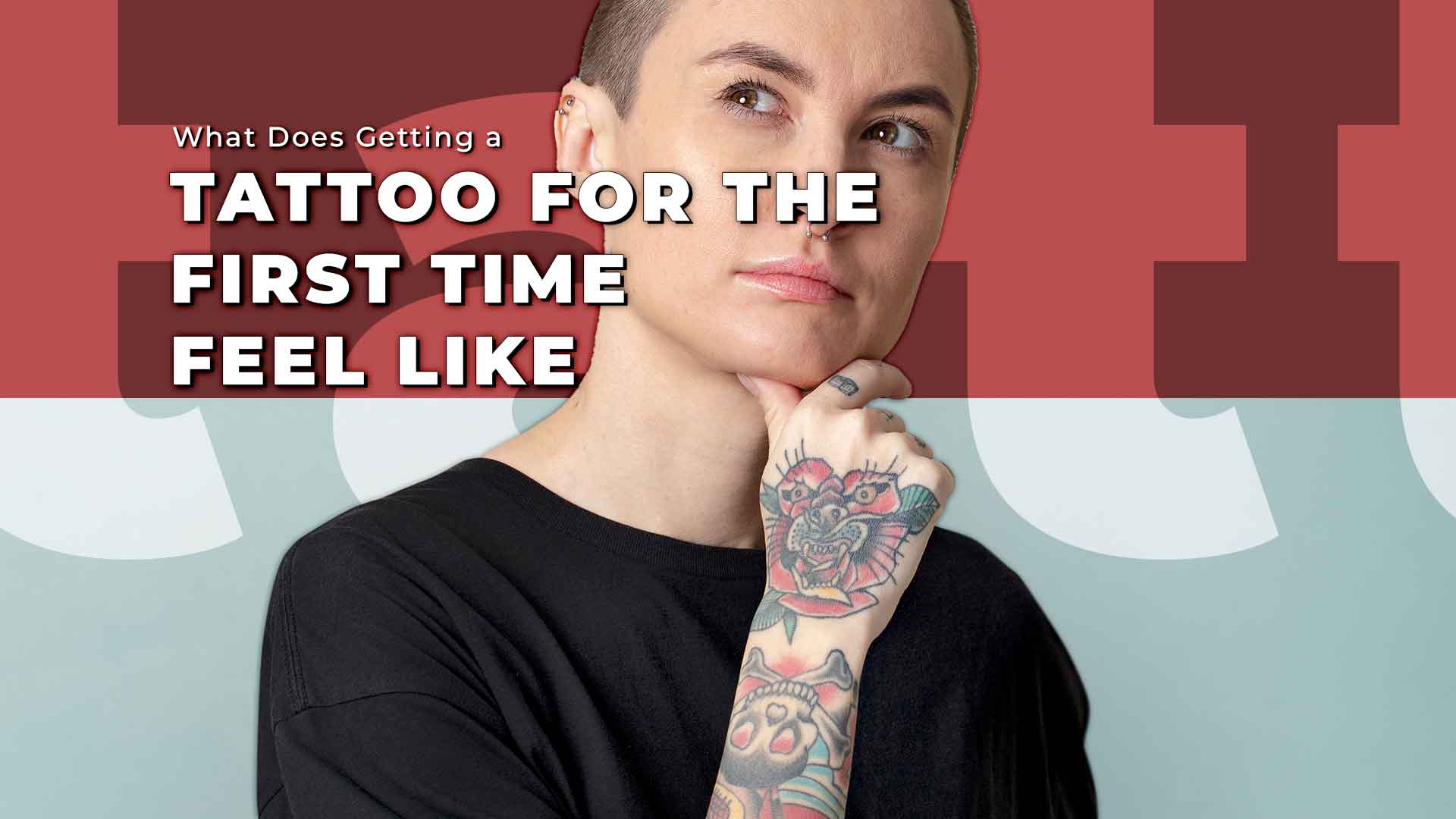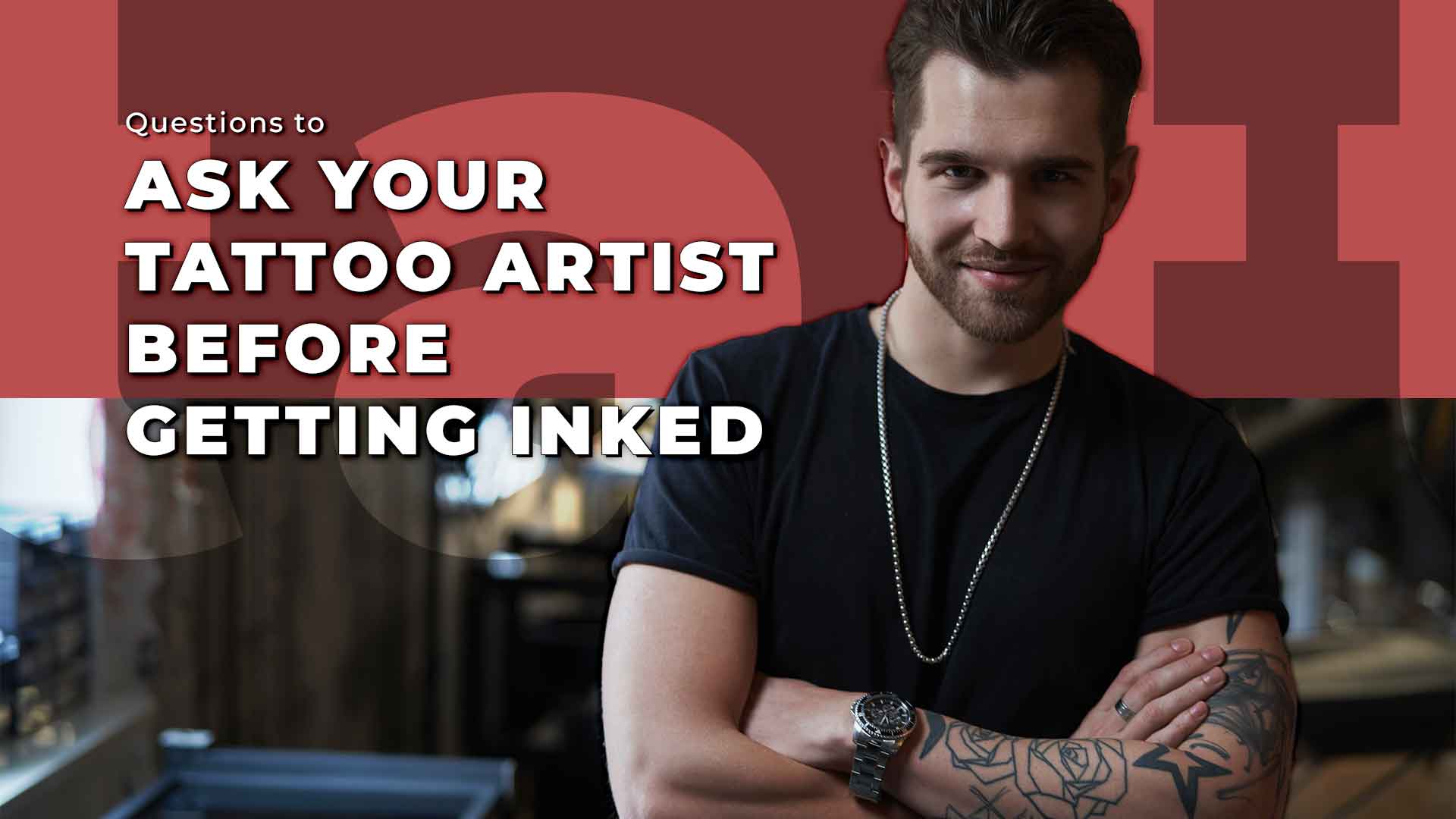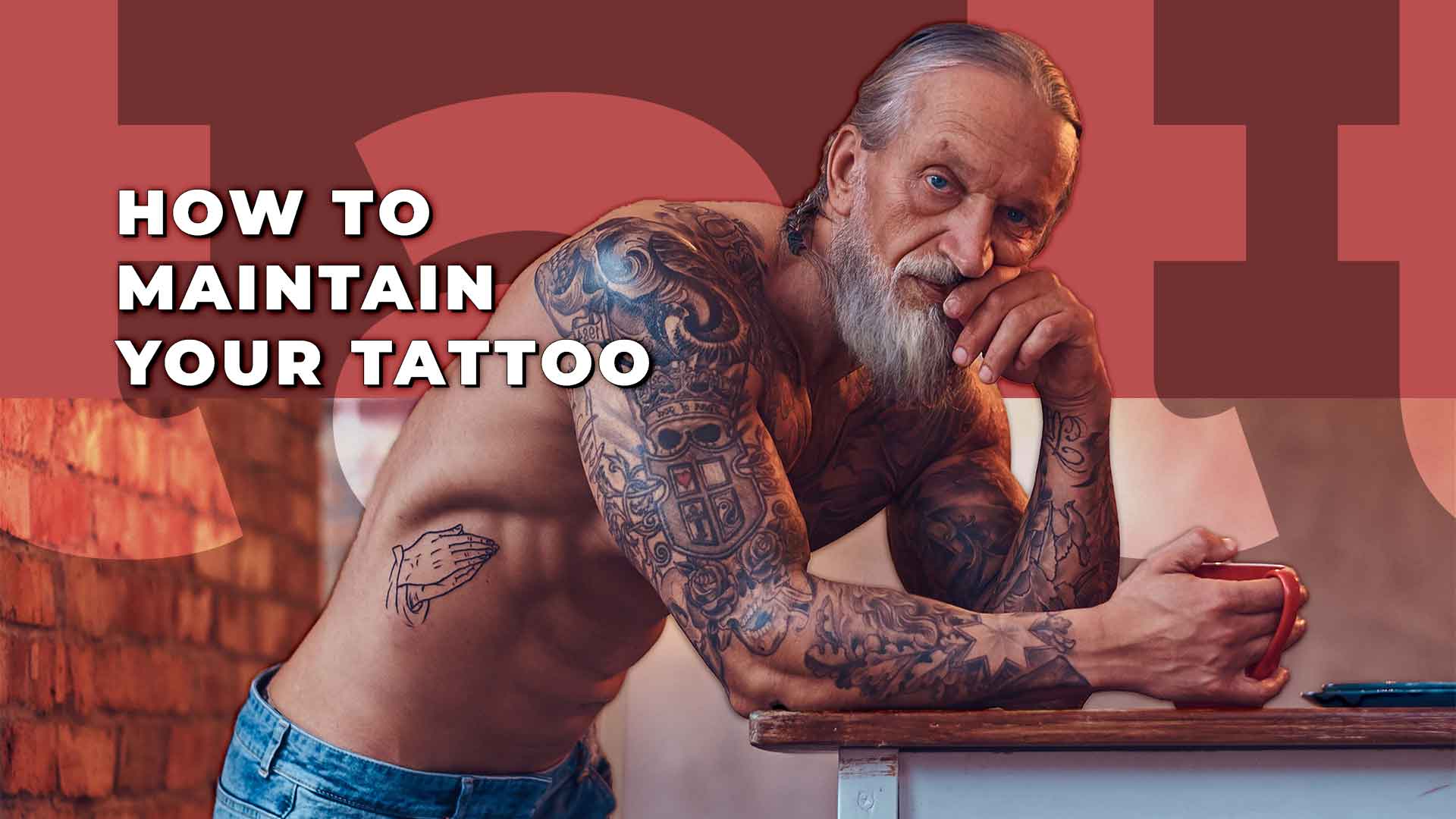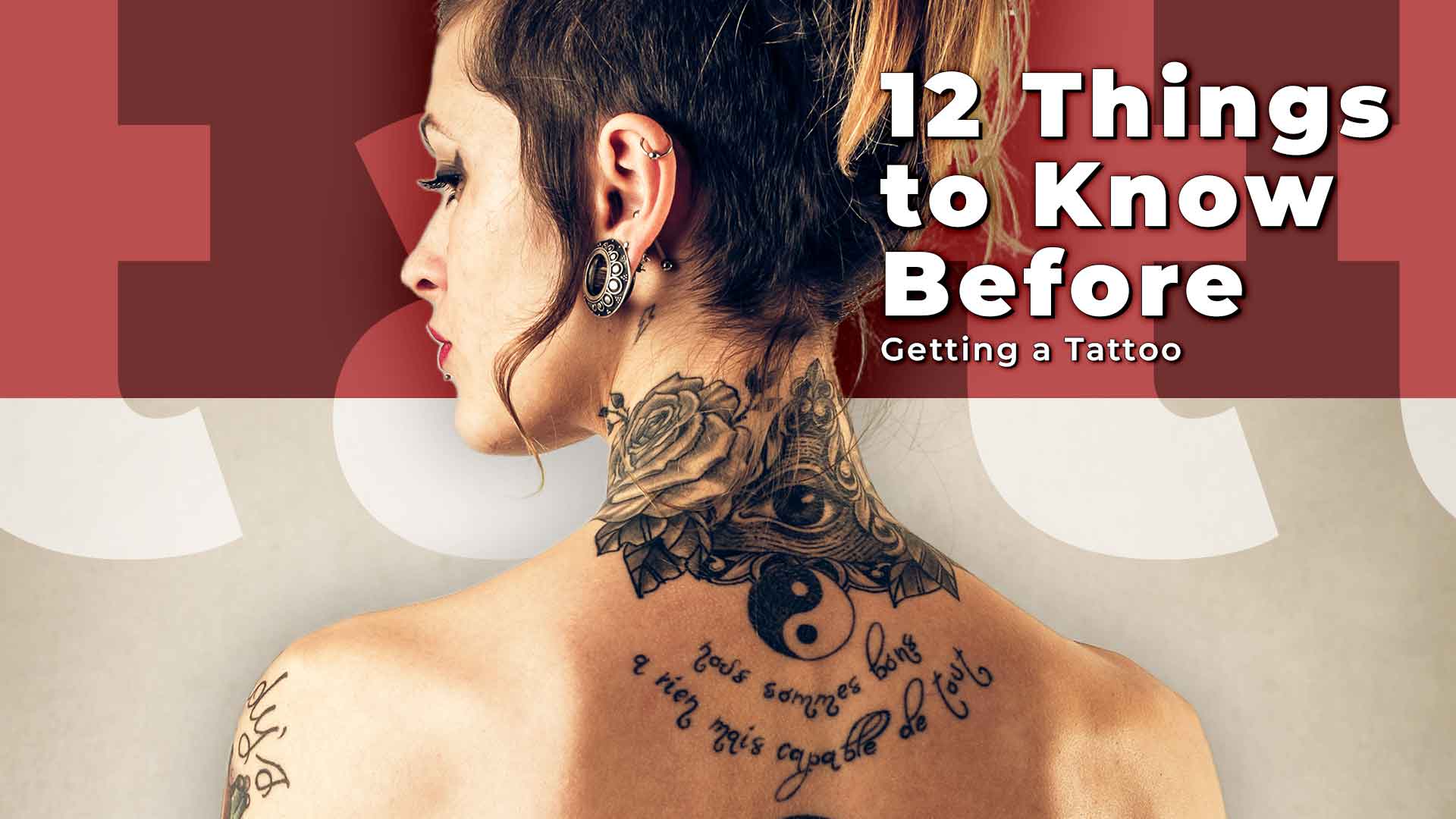By taking certain measures, you can ensure that you not only love your new tattoo but also that it stays healthy. To help make your experience as seamless, pain-free, and worry-free as possible, we’ve compiled all the information you need to know.
First experiences tend to be unforgettable, and the same goes for your first tattoo. It’s similar to the first time you had a professional stylist work on your hair, nails, or makeup or the first time you got a piercing. However, getting a tattoo is even more significant since it’s often a permanent addition to your body.
Some individuals are impulsive and go ahead to get inked, while others have tattoos on their bucket list but feel hesitant about it. It’s understandable to feel anxious about getting a tattoo, as it requires a significant time commitment and can be uncomfortable. Additionally, reading negative tattoo stories online can amplify one’s fears, especially before their first tattoo session.
That’s why it’s crucial to do your research and ensure that you’re fully prepared for the event. After all, you’re essentially placing a work of art on your body that will be with you for a considerable amount of time.
As everyone’s tattoo experience is unique, it’s hard to anticipate how your first tattoo will feel, causing some individuals to become even more nervous. If you’ve been contemplating getting a tattoo but don’t know how to begin, these 12 tips will help guide you.
Table of Contents
Toggle12 Things You Should Know Before Getting Your First Tattoo
1. Learn from others’ experiences
Gaining insight from others who have tattoos can be helpful, although everyone’s experience is unique. While some may describe their tattoo session as extremely painful, others may have a more positive experience. Nonetheless, talking to someone who has already gotten a tattoo can provide you with a general idea of what to expect. You can seek advice from people you know or watch videos online of others’ tattoo experiences on platforms like YouTube.
2. Choose a reputable tattoo studio and artist
If you’re nervous about getting a tattoo, finding a studio with a friendly atmosphere and skilled artists can help ease your fears. Developing a good rapport with your artist can also enable you to express your concerns, and they will likely try to make you as comfortable as possible throughout the session. It’s a good idea to visit the studio before making an appointment, or you can search online for well-regarded tattoo shops in your area.
You can even book a free consultation at one of the best tattoo studios in Canada, HardWork Tattoo.
3. Bring a support person or ask for one
Some tattoo parlors allow customers to bring a support person, which can be incredibly helpful. If you can go with a friend, you can observe the entire tattoo process and receive assistance in distracting yourself from any discomfort. Additionally, your support person can help you stay hydrated or anything else you might need during the session. Don’t hesitate to ask your tattoo artist about the availability of a support person.
4. Know Your Pain Tolerance
Understand your pain threshold before getting a tattoo. If you have a low pain tolerance, consider starting with a smaller tattoo. This will give you a sense of what to expect, and if you enjoy the experience, you can always get a larger one later. Remember, most people find tattoo pain tolerable, which is why they are so popular.
Research the pain scale to understand which areas of your body are less sensitive to pain. This knowledge can help you feel more secure about your tattoo.
5. Take Breaks During the Session
Remember to take breaks if you need to. Request a break from your artist if you need some fresh air or time to reflect on the process. This will also allow your artist to stretch and relax. However, try not to take too many extended pauses, as this can break the connection between you and your artist.
6. Pain is Not Constant
During the tattoo process, the artist will need to refill the ink, giving you time to catch your breath. Remember that the pain is not constant and that the artist will take breaks throughout the session.
7. Get Your Diet in Order
Eating a healthy, nutritious diet before your tattoo can help your body heal faster. Focus on foods high in vitamins, particularly vitamin C, and make sure to stay hydrated by drinking plenty of water and juice. Avoid dairy, sweets, and processed foods, which can slow down the healing process.
8. Wear Comfortable Clothes
Dressing in loose, comfortable clothing is important since you’ll be in a fixed position for an extended period of time. Make sure your clothes are clean, and avoid anything that covers the area of your body that will be tattooed. Bringing an extra jacket or sweater is a good idea in case you get cold.
9. Avoid Alcohol and Caffeine
Alcohol and caffeine can thin your blood and make the tattoo process more painful. It’s best to avoid them for 24 to 48 hours before your session. Arriving hungover or caffeinated can also make you feel uncomfortable during the session.
10. Get a Good Night’s Sleep
Make sure to get at least 8 hours of sleep the night before your tattoo. Maintaining a regular sleep routine for a week before and after the session can also help with the healing process.
11. Do Not Bargain
When you go to a salon, you expect the best service and are willing to pay for it. Likewise, when you’re getting a tattoo, you shouldn’t treat the artist any differently. A skilled tattoo artist has earned the right to charge what they do, and haggling or being stingy isn’t appropriate. Remember that tattoo artists appreciate tips as well. Also, make sure you’re ready and willing to follow all the aftercare instructions that your tattoo artist provides.
12. Follow Aftercare Instructions Carefully
Getting a new tattoo means caring for an open wound until it’s fully healed, which can take up to two weeks. Listen to your tattoo artist’s advice and follow their recommendations to prevent infections and protect the artwork. Using products like A+D ointment or Aquaphor, avoiding swimming or soaking in a tub, and keeping the area clean and dry are all essential steps. You should also keep the tattooed area out of the sun and avoid wearing tight or sticky clothing.
What Does Getting a Tattoo For The First Time Feel Like?

If you’re wondering about the pain of getting a tattoo, note that it will likely be uncomfortable to some degree. However, the level of pain varies depending on your pain tolerance, the size of the tattoo, and its location on your body. Generally, tattoos can be more painful in areas that are more sensitive and have fewer layers of flesh. However, if you have a high pain tolerance, you may not feel much discomfort. Additionally, areas of your body with more flesh, such as the bicep or thigh, tend to be less painful.
Some areas of the body that tend to be more painful during tattooing include the forehead, neck, spine, ribs, hands or fingers, ankles, and top of the feet. It’s worth noting that while some level of pain is almost inevitable, most tattoo artists agree that the level of discomfort tends to be worse in these areas than in others.
Questions to Ask Your Tattoo Artist Before Getting Inked

Consider these questions before getting your tattoo:
- How many years of experience do you have as a tattoo artist? While apprentices can produce excellent work, certain designs may be better suited for experienced artists.
- What are your qualifications and areas of specialization? Some artists specialize in particular styles, even if they can also do more general styles.
- Can I see your portfolio? A reputable artist should have a portfolio of their previous work available to help you understand their range and specialties.
- Do you offer any guarantees for your work? During the healing process, small spots of ink or other imperfections can occur. Most artists provide one free touch-up session to fix these issues.
- What is your hourly rate or minimum charge? Regardless of whether your piece takes 15 minutes or 2 hours, most artists have an hourly rate or minimum that must be met before they will take on a project. Some charge on a per-piece basis.
- How do you sanitize your equipment? If an artist cannot answer this question, it’s best to move on. Poor sanitation practices can lead to infection or other issues.
- Do you use latex-free gloves? This is particularly crucial if you have a latex allergy.
- What brand of ink do you use? If you have allergies to particular ingredients or materials, it’s essential to bring them up during the consultation.
- What placement do you recommend for this design? While you may be set on getting inked in a specific location, the artist may recommend a different placement. Remember that they’re the experts, but you should also be happy with the final product.
- What aftercare procedure do you recommend? A reputable artist will provide you with information about what to expect after your piece is complete.
How to Maintain Your Tattoo?

Maintaining your tattoo is crucial for its longevity and appearance. While most tattoos heal on the surface layer within a few weeks, complete healing may take several months. Proper care is essential to reduce the risk of infection and ensure that your tattoo looks great over time.
Practice good hygiene to avoid infection. If you experience warmth, tenderness, burning, swelling after a few days, or pus with an odor, see your doctor immediately.
Keeping your tattoo hydrated and fresh is also crucial. Direct sunlight can cause colors to fade, so use quality sunscreen or SPF clothing. Dry skin can also affect the appearance of your tattoo or ink.
Summary

Rushing to get a tattoo may result in poor quality or even an infection. Take the time to find a reputable artist and the perfect design. Patience is key, and if you have a positive experience, you may even want to get more tattoos in the future to express yourself and boost your confidence.

